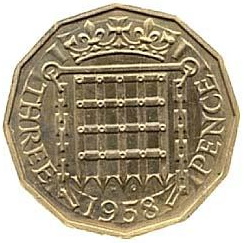Wrong, But Useful: Episode 43
/podcasts/wbu43.mp3
In this month’s installment of Wrong, But Useful, our special guest co-host is @mathsjem (Jo Morgan in real life) from the indispensable resourceaholic.com.
- We start by talking about resourceaholic.com and how Jo manages to fit such a punishing blog schedule around being a nearly-full-time maths teacher.
- Colin wonders how writing has affected Jo’s teaching practice.
- The number of the podcast is 530, an untouchable number.
- Apparently you peasants who carry money around are excited about the new £1 coin. Jo used to work at the Bank of England and has insights about how statistics can be applied to the circulation of banknotes. We refer to an article by @mscroggs about £1 coins. Dave denies ever having walked out of the Bank of England with 20 one-pound coins in his shoes - but then, he would. We discuss counterfeiting.

-
Dave has a ridiculous thing:
Stupid question with not enough information from FB.
— Dave Gale (@reflectivemaths) April 9, 2017
Amusing about the lack of apostrophe though. #ukedchat pic.twitter.com/fMOTefywfvWe refer to my fake maths post.
- Dave’s student answered “Simplify $7a + 5b + 3a - 2b$ with $10A + 3b$. Should they get the marks?
-
@robeastaway also has a ridiculous thing:
My 11 year old's sample SATs papers found in his book bag. "Work out 1118÷43 (no calculator)." I wish all ministers had to take these tests. pic.twitter.com/dEOiLv2fsJ
— Rob Eastaway (@robeastaway) March 22, 2017We agree that prescribing methods is wrong.
- Colin mentions @robjlow’s post on quadratics
- We discuss the effects of the new GCSE and A-level on uptake. This involves a shout-out to @stecks and @peterrowlett’s Taking Maths Further podcast
- Last month’s puzzles: @chrishazell72 gets a gold star for a mean of 250.5 for Christian’s 1000 means puzzle, and says that getting 10 $\frac 1 3$ chances in a row over 100 trials is about 1/1000
- This month: a square has an area of 18. What’s its diagonal? Also, Find all triples of positive integers $(a,b,c)$ such that $\left(1 + \frac 1 a\right)\left(1 + \frac 1 b\right)\left(1 + \frac 1 c\right) = 2$